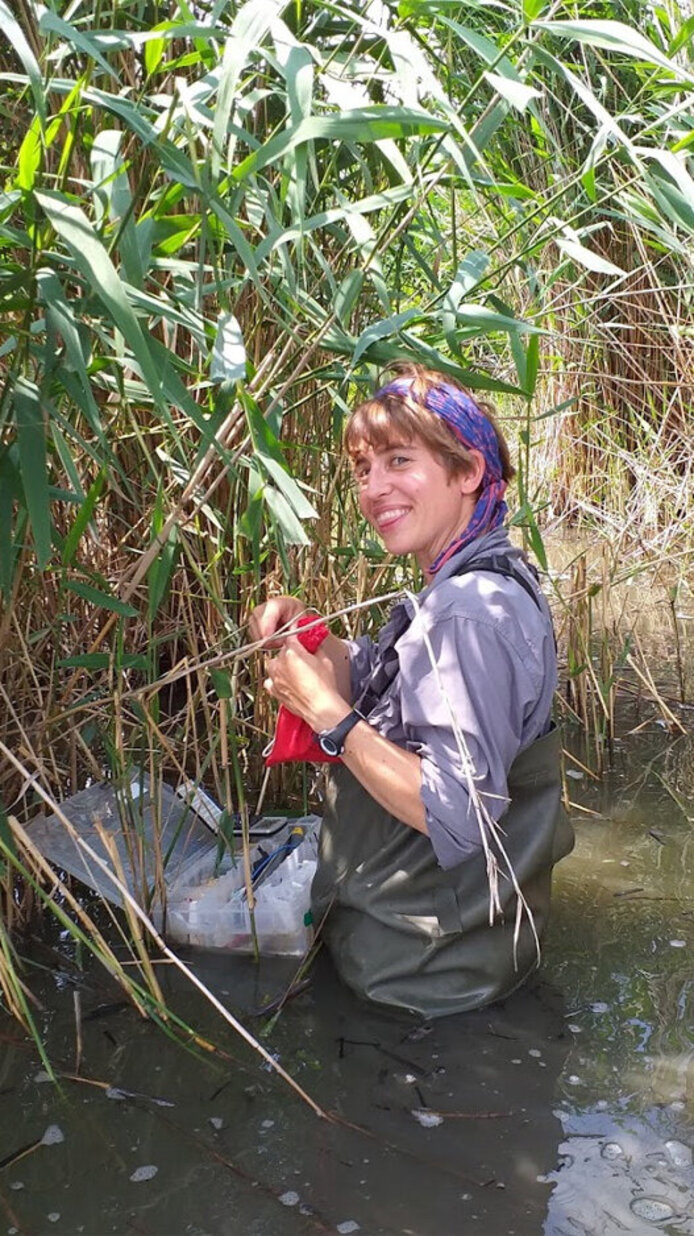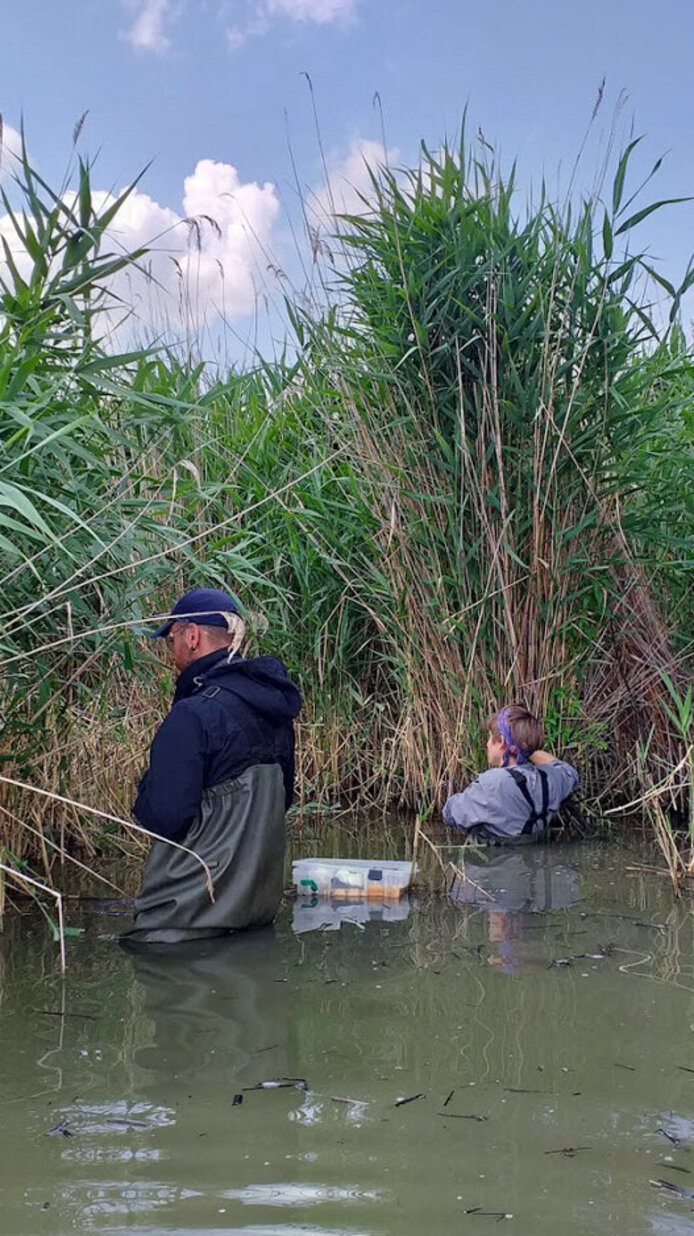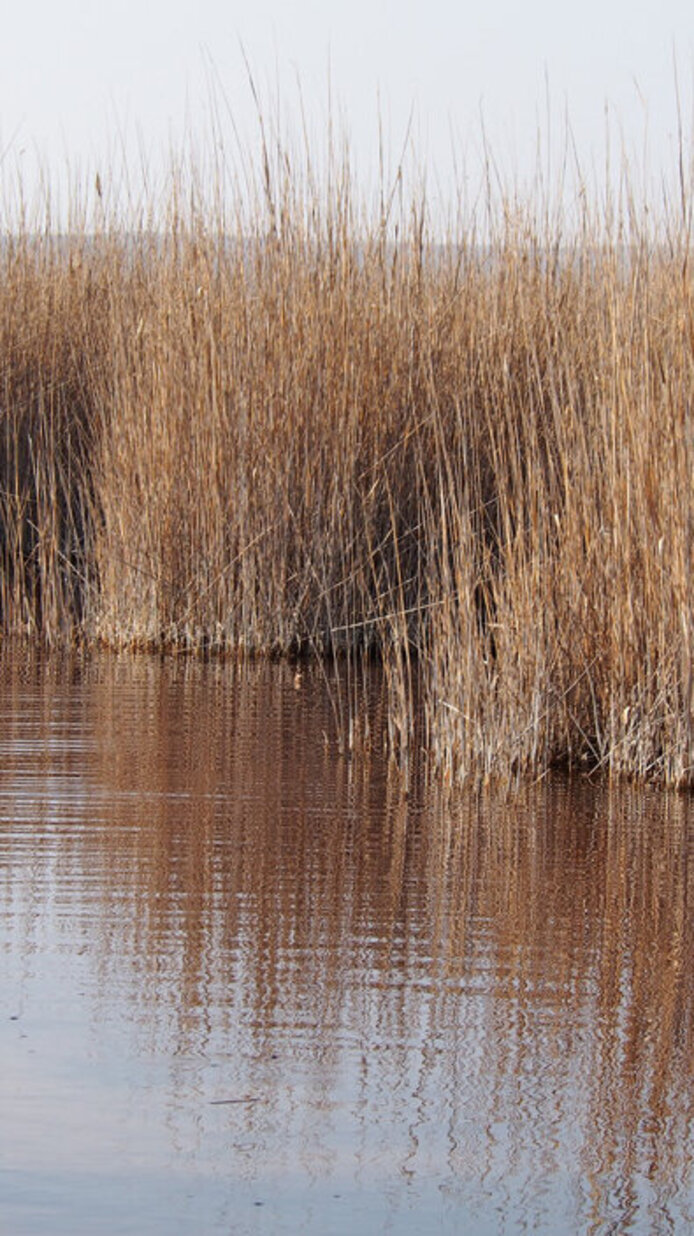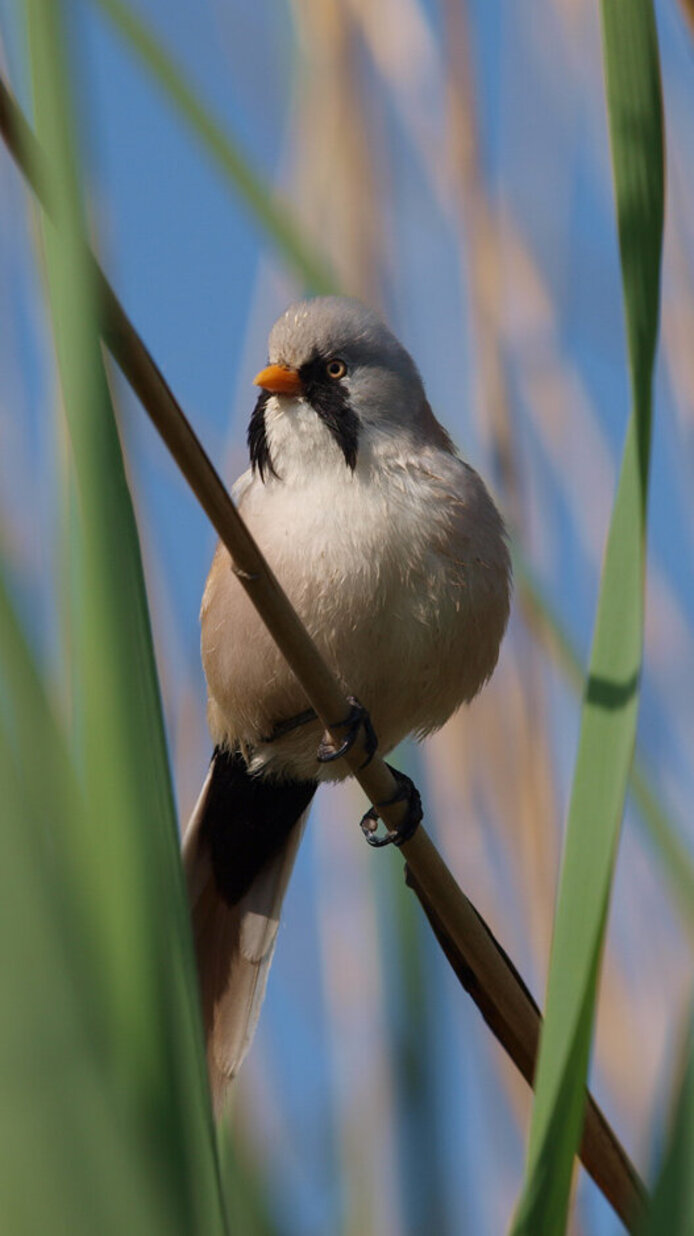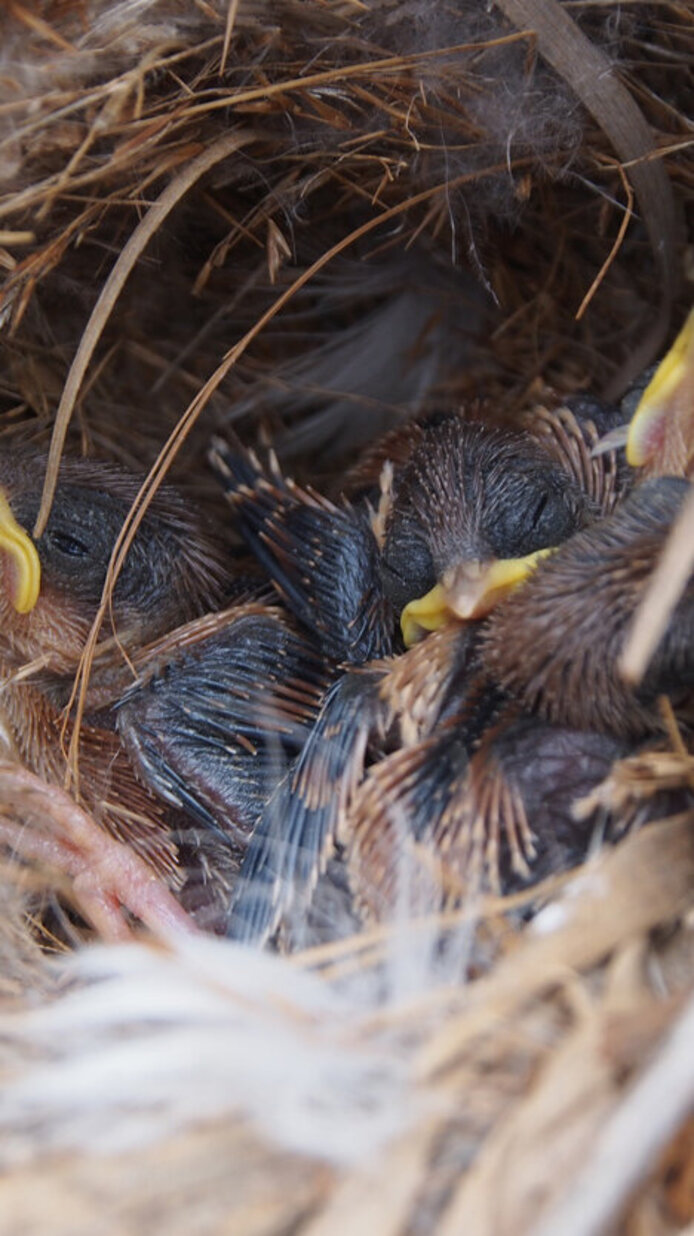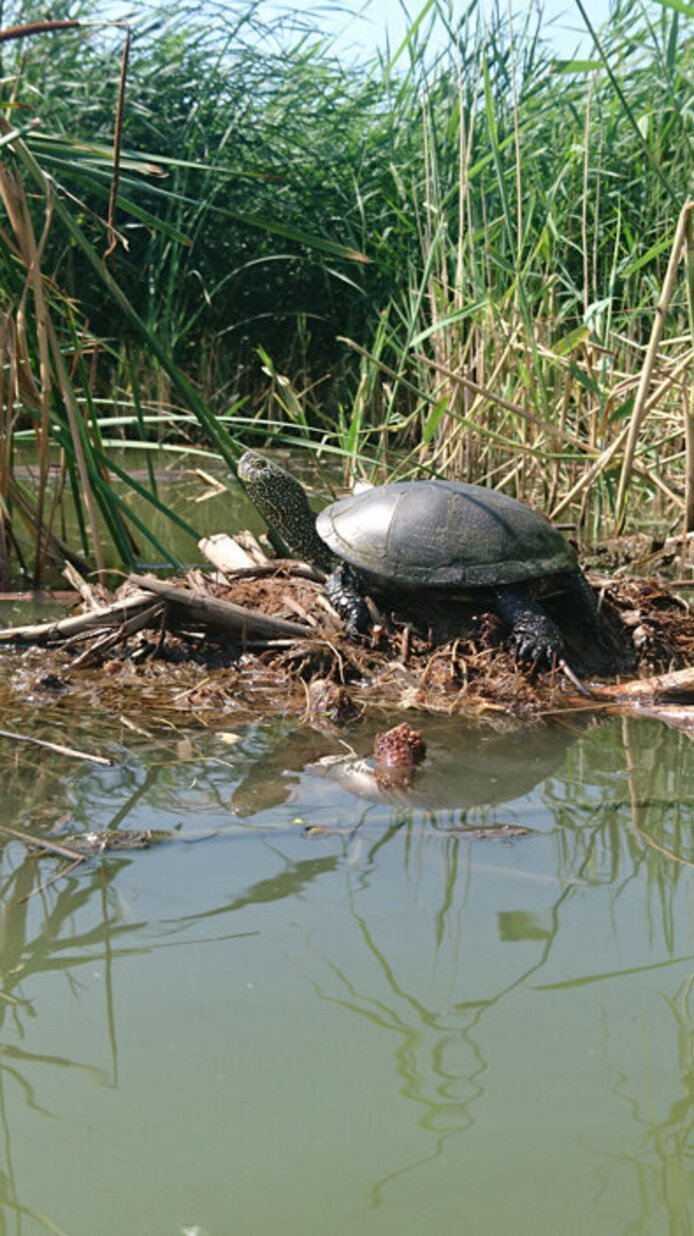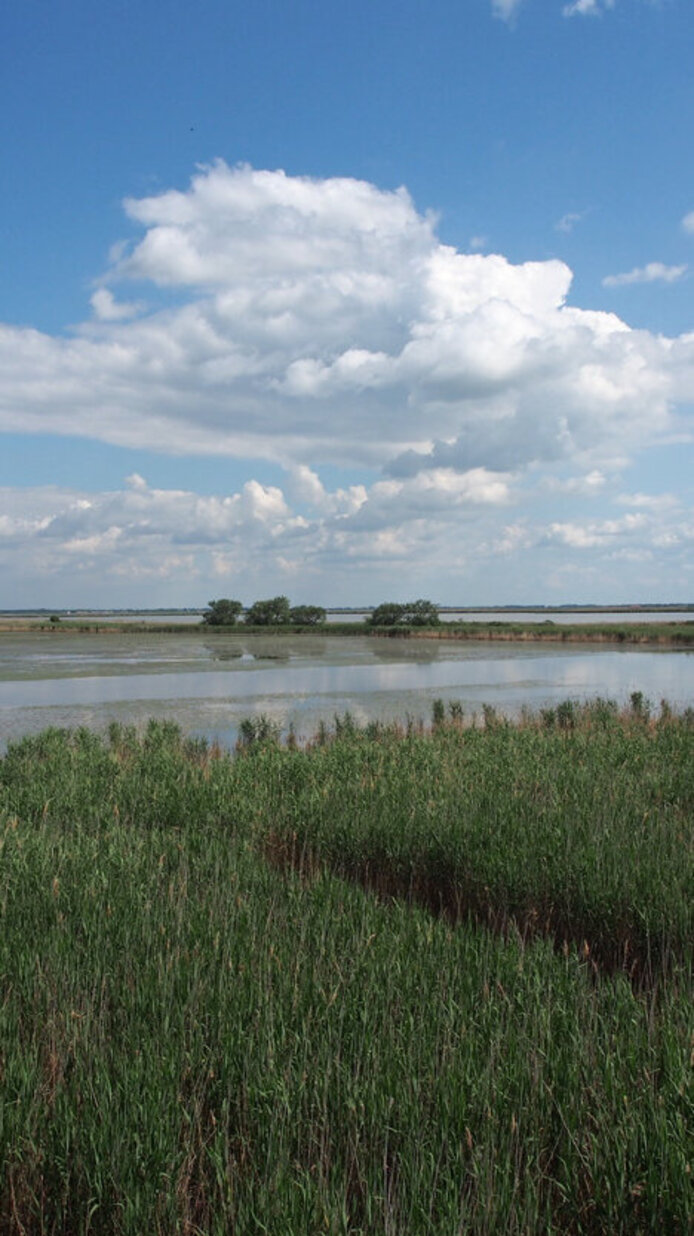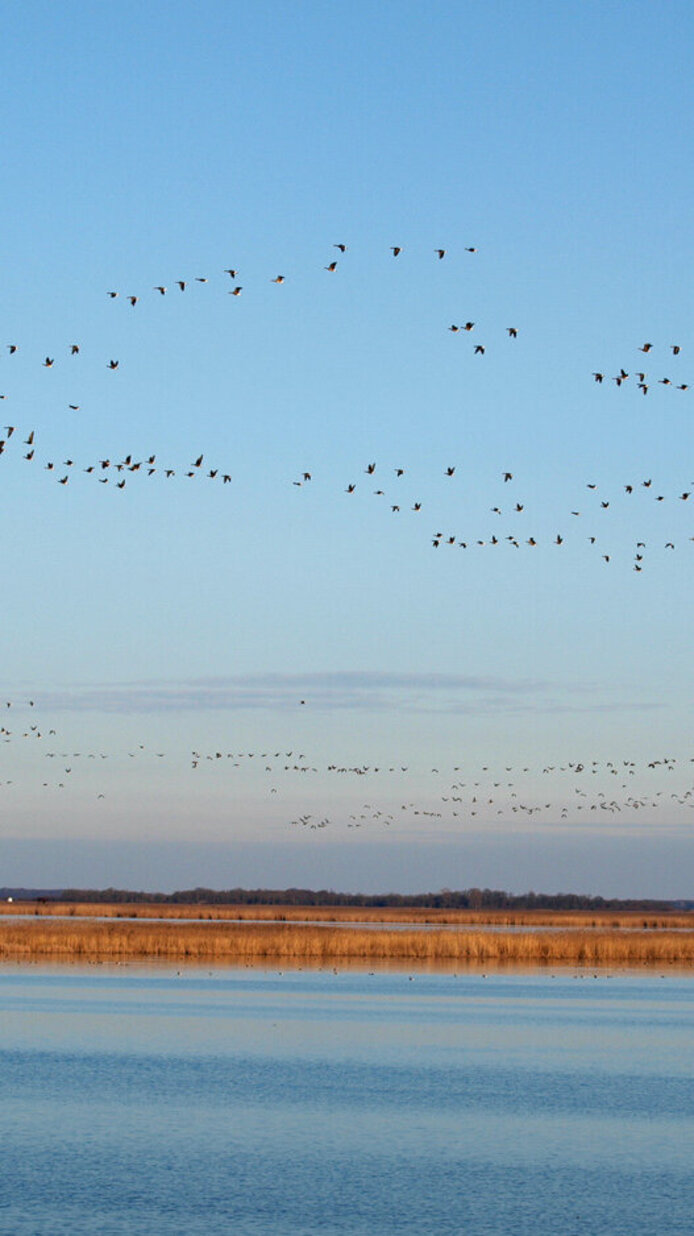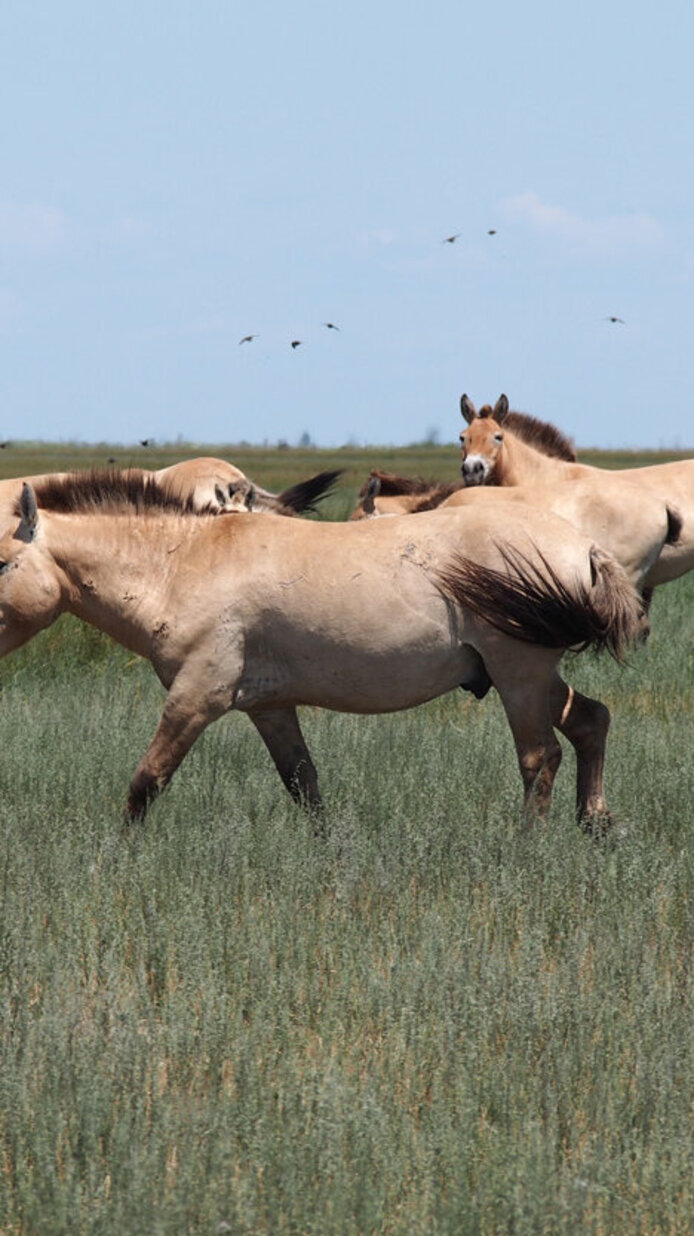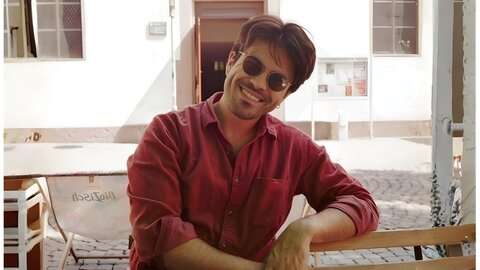Early morning in the reeds
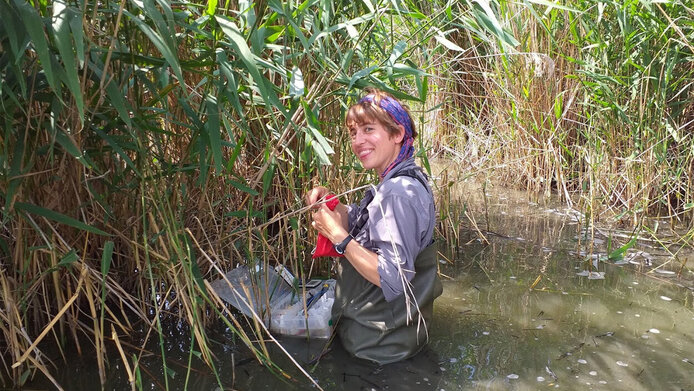
On my hands there are countless mosquitoes trying to get breakfast. Floating next to me is a dead carp, which an otter has nibbled on but then abandoned. A spider is running down my spine, and so is a trickle of sweat. Suddenly, I hear a cry behind me: “Run!” My right foot fails to hit firm ground, my left one gets stuck in the mud. I fall over and feel the muddy water run into my waders. Arms flailing, I grab a bundle of reeds, cut my finger, pull myself up and trudge off. Two tiny birds are hanging in the net in front of us. – We have finally caught the breeding pair we have been watching for a fortnight.
This was our daily routine amid the reeds of the “Hortobágyi Halastó”, a complex of fish rearing ponds situated in the large Hortobágyi National Park. Over time, it has turned into a small nature and wildlife gem, attracting spectators from all over the world with its abundance of species and the spectacular migration of cranes in the autumn. I, however, have been attracted to this area and the nearby university town of Debrecen by something else: the hormone named “insulin-like growth factor-1” (IGF-1).
Hormones, behaviour, birds ...
While IGF-1’s mode of action is well understood, our knowledge is limited to studies from clinical research and farm animal science. IGF-1 has been identified as one of the potential key factors determining individual “life histories”, i.e. growth, development, ageing processes and reproduction. It is surprising, therefore, that these aspects have hardly been studied in wild animals with a view to their significance for the day-to-day life of organisms in their natural environment.
This is the very question that Ádám Lendvai and his team at the Department of Evolutionary Zoology and Human Biology at the University of Debrecen are investigating. Adam’s laboratory is one of the few that measure IGF-1 in the blood of songbirds. Having collaborated before, and given our shared enthusiasm for ornithology and behavioural ecology, we quickly came up with the idea for the project “The role of IGF-1 in reproductive life history”. Based on my previous work in sexual selection and reproductive biology, I am particularly interested in how IGF-1 influences reproductive strategies (breeding behaviour, for instance) and the ornaments in the plumage of songbirds that are so important in choosing a mate. The bearded reedling (Panurus biarmicus) serves as the study species. It is particularly interesting for the issues under study owing to its rapid reproductive cycle, its socially monogamous pair bonding and the striking marking of its plumage.
... and a great deal more
Not only did I spend a lot of time in the lab and in the reeds learning new techniques and collecting samples and data (breeding behaviour, plumage characteristics), I also fondly remember some surprises outside of science that Debrecen had in store for me. A wine tasting in the famous Tokaj wine region that my colleagues organised, for instance. I was also allowed to take part in an exclusive excursion to the herd of Przewalski's horses in the Hortobágyi National Park, and I often enjoyed patient company when doing my weekly shopping at the market hall, where lots of culinary treats beckon.
At home in the lockdown
Shortly after I began my return phase in the spring of 2020 collecting data at the Konrad Lorenz Institute for Comparative Behavioural Research at the University of Veterinary Medicine in Vienna, Covid-19 became a real issue in Austria. The fact that the breeding season of the bearded reedling coincided with the lockdown was a problem, and since exchanges between Vienna and Debrecen were no longer possible, the collection and evaluation of our data also became more complicated. But by joining forces, being flexible, having a bit of luck and investing an enormous amount of work we nevertheless managed to complete the project successfully.
The Erwin Schrödinger Fellowship was a unique opportunity for me. Many adversities notwithstanding, the great cooperation had many positive sides. Among the positive outcomes I count not only publications, one or two ideas and even project proposals, but also many wonderful memories. Overall, the research stay in Hungary broadened my horizons in many ways.
